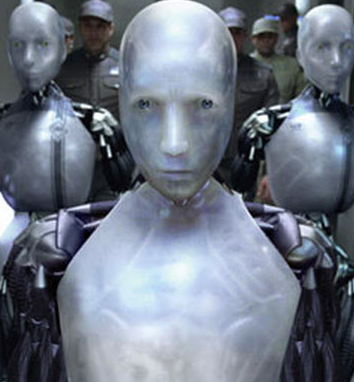Steal This Singularity: Entry #1
October 18, 2012 by R.U. Sirius
I’ve been sort of playing around with the concept — “Steal This Singularity” — for several months now. Prior to attending Singularity Summit 2012, I was thinking about it in political terms.
Letting “Singularity” represent, essentially, a buzz word for a future radically transformed by technology, my “Steal This Singularity” notion was simply that the transhuman future should not be dominated by big capital and/or authoritarian government; and that — contrary to the reassurances of many glib futurists — this requires some intentionality, both in terms of programming and activism.
The technology doesn’t insure this by its very nature. And the current general trend in this regard is not positive, but extremely ambiguous at best. But I’ll save that for another essay.
Recoding/uncoding the programming/engineering monkey-mind
Upon spending an afternoon at Singularity Summit and spending an evening vicariously experiencing Joaquin Phoenix’ trickster walkabout, another feeling emerged and, with it, a different sort of “Steal This Singularity” theme. To wit: the clever, logical, programming/engineering monkey-mind should not be allowed to instantiate its limited idea of humanity, the universe and everything, on… well… humanity, the universe and everything.
The tricksters, the freaks, the surrealists, the hedonists, the outsiders — and all the uncodable strangeness that emerges from the biological codes’ diversification into cultural complexity and then into something as perverse and rationally pointless as a multilayered prank in a cinematic celebrity culture — must hijack the engineer’s Singularity and recode it or uncode it so as to allow for liminal spaces outside its totalizing grasp.
We live in a time in which seemingly smart humans love to present us with absolute dualistic options: Republican or Democrat, socialist or free market; believer or atheist; Britney or Christina; Science or Superstition. These discourses are dominant even among an intellectual class that used to know better; and the notion that there could be terrain outside those frames becomes, well, not exactly unthinkable but somehow too trivial to consider as anything but a sideshow.
I’m aware of the risk here in even implying that the instantiation of the biases of the engineering monkey mind over everything is a conscious or unconscious intention that undergirds much of the Singularitarian sensibility. Singularitarianism and — more broadly — transhumanism — has produced a veritable glut of abstract theorizing, so whatever novel perceptions or objections or concerns one may think one is bringing to the party, some smarty pants has probably swatted it away or incorporated it into its logical totality.
Sex and the Singularity
On the other hand, if there was a role for artists in Singularity Summit 2012, I didn’t notice it. Sex — a primary desire for most humans — seemed to be almost unmentionable, if not entirely archaic. Heightened subjective states of consciousness — ecstasy, agape, rapture — seem to be well off the map.
Of course, it’s part of the culture of science that legitimacy requires the maintenance of a bordering-on-Calvinist front, but consider that when I interviewed (with Surfdaddy Orca) Ray Kurzweil for H+ magazine a few years ago, and suggested that the idea of utopia might involve people feeling good and being happy, he immediately leapt to a vision of people hanging around all the time on a morphine-like high.
(I actually think several billion human beings acting out the sort of western ideal of ambitiousness with Singularitarian technology is probably scarier than having most of them in an opiated haze, but I don’t think those are the only options. Anyway, that’s a different rant for a different time.)
This lack — this apparent negligence or denial or trivialization of non-obvious aspects of subjective human experience and peculiarity — may prove to be of minimal importance if transhuman techno-evolution stops short of the Singularity.
A diversity of mindstyles
If we don’t design silicon intelligences that will, for all intents and purposes, replace us — or at least dominate our original biological brains if we take them within us — but, if rather, we simply end up with tools that amplify and enhance, then there’s a reasonable hope for a diversity of mindstyles.
Some will gather in Less Wrong communities where they will continuously refine rationality; some will live in an eternal, amplified Burning Man of lived art, presentation and playful deviance; most will dip into both these and other memeplex scenes while engaging in a world rich in opportunity for all possible expressions of humanness or posthumanness.
But supposing that we do create the vastly superior intelligence. Even if we merge with them, what aspects of humanness that some of us may wish to preserve will be overwhelmed? Will the imp of the perverse, as displayed in my Joaquin Phoenix example, still stun our predictable mentations into momentary silence? Can the engineered superior intelligence experience something as evocative, or is that too vague?
Will some of us still be driven into ecstasy dancing to James Brown? What happens to the human characteristics that have given us characters like Arthur Rimbaud, Salvador Dali, Bob Dylan… you know, people who don’t make any goddamn sense? And what the fuck did Nietzsche mean we he wrote, “I tell you. One must still have chaos within oneself, to give birth to a dancing star.”?
My next Steal This Singularity entry will take on the more sober political and economic implications of the concept.
Excerpted with permission from ACCELER8OR
